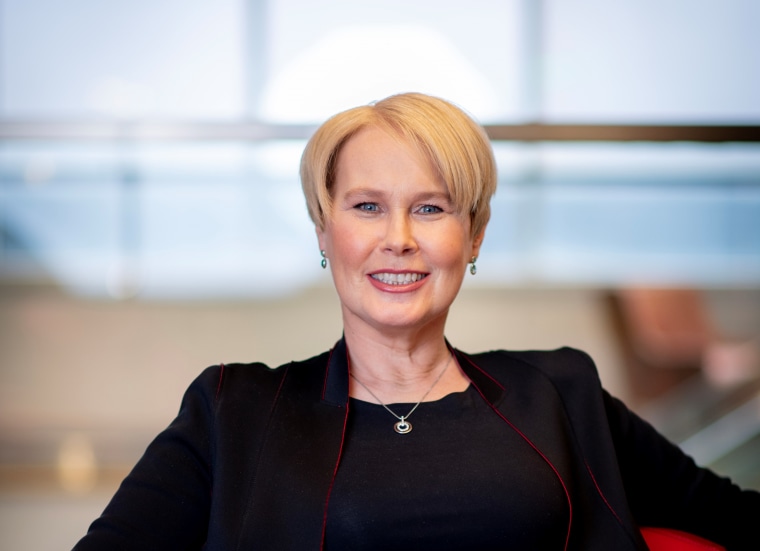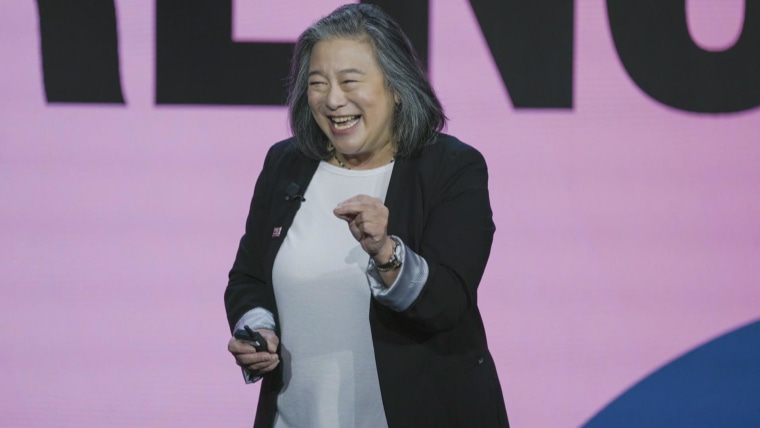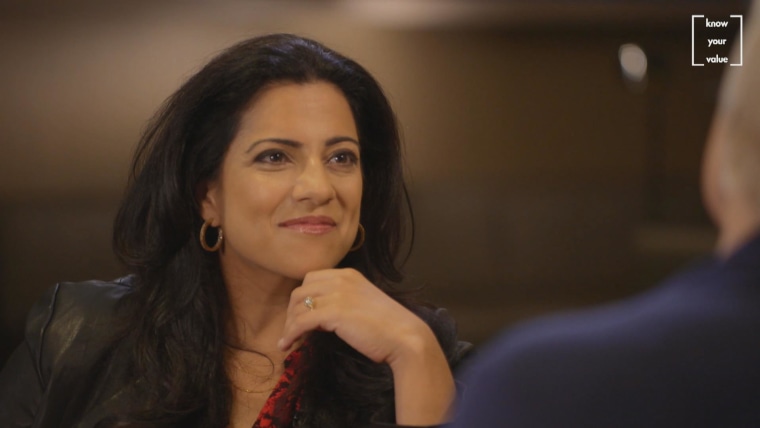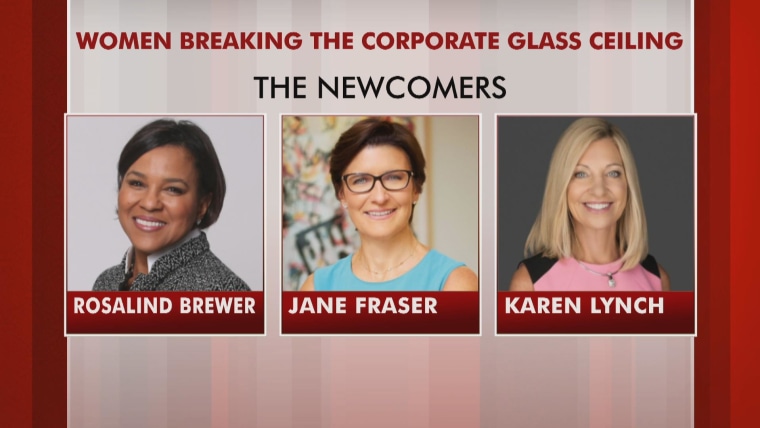Maggie Timoney, the CEO of Heineken USA, may be best known for shattering the glass ceiling of an industry dominated by men.
But Timoney is quick to point out that at the end of the day, she will be judged on results and not her gender. “I did not get this job because I am a woman. I got this job because I have left previous companies in a better place for having been there and that is what my job is today. I am a CEO that happens to be a woman, not a CEO because I am a woman.”
That confidence has helped Timoney, who has over 25 years of experience in the beer and cider business, climb to the top of her field.
The Ireland native, who now lives in Connecticut, has worked for Heineken since 1998. She started off as a national sales planning manager for Heineken USA and has held several positions for the company in the U.S., Netherlands, Canada and Ireland, including general manager of Heineken Canada, senior vice president of human resources in the U.S., and CEO of Heineken Ireland.
Timoney recently chatted with Know Your Value’s Mika Brzezinski on her upbringing, which included working at a cattle mart where cows and sheep were auctioned and playing for Ireland’s national basketball team. Timoney also talked about the importance of taking risks, the challenges of steering her company through a global pandemic, how we can get more women into leadership and CEO positions and more.
Below is their conversation, which has been edited for brevity and clarity:
Mika Brzezinski: You have a very interesting and unconventional past, helping auction cattle and sheep in your early days in County Mayo, Ireland. What lessons did you draw from those experiences? Did it help build who you are today?
Maggie Timoney: My mother said to me after high school in Ireland… “you need to go and get work experience.” No one in my family went to college, university…
So, what I learned when I went to work there, it was all farmers coming in, selling their livestock, but I remember working with … older women, they played a big role in the office … I learned how to see people as people there … I learned not to judge. I mean, I was 17, 18 maybe. [One of the women], Carmel, who was in her late 40s, which I thought was so old at that time, I learned so much from all them as women and the jobs that they did. But I also learned to have fun.
And here I was, a young teenager. And I think there, I learned not to judge a book by its cover. Not to be cliché about it, but I saw people as people with all the beauty that they could bring to a role, no matter what the company…
Brzezinski: I think at 17 you could go, "Oh, why would I do this? How could I be put in this position?" And then you realize people are what make the heart of a company. You realized it's important to stop and recognize everybody here is a human being with a story of doing something amazing and having some challenges in life.
Timoney: [At Heineken , we recently had a] global call on inclusion and diversity, and it was a dedicated two hours. And we had breakout groups. But for me, that's inclusion. I didn't judge Carmel as an older woman, because when you see people as people, that fosters and accelerates inclusion and therefore, as a result, diversity happens. And we need to spend more time helping leaders see people as people first …
Brzezinski: One of the recommendations you have made throughout your career is to not to shy away from risky opportunities. And you’ve said that one of the biggest career risks you took was going into HR, an area where you had less experience. You had previously been in commercial, global and management roles before being asked to lead the Heineken USA HR department in 2010.
I think women really struggle with risk, change and breaking the rules. Tell me why it matters to go get out of your comfort zone.
Timoney: ... I’m a confident person. But when I [made that career move], I had to come back to the U.S. because I'd been in Canada. There are [previous risks] that I took [earlier in my life] that I think helped me adapt quicker …Whether it was [playing for the Irish national basketball team and coming to the U.S. on a full basketball scholarship at Iona college], going with Heineken to the Netherlands, then Canada, then back to the U.S., and then working in Ireland for the first time know your value they're very formative moves.
… I say to people, if you have a chance to do a cross functional move, men or women, do it. What's the worst that can happen? If it doesn't work out, you go do something else. It's not a one-way door.
Brzezinski: It must be an incredible time to be a CEO during a pandemic. Did it throw you off track? Did it challenge you? Did you learn something about yourself?
Timoney: We lost a colleague on March 19, [2020]. That was the absolute worst that could happen. So, our number one priority was to keep people safe. It's not just a check in the box. We take that to heart…
I remember, I asked one of the people on my team that I worked closely with. I said, "What's your story? How are you doing? What's your stress levels on a scale of one to 10?" And she said, "I'm a nine." I said "Let's talk. What can we do? What can I do?" And she goes, "Well, what's your stress level? You’re leading this company through this turbulent time." And I said "two,” because I realized there was so much outside of our control.
So, I just said, "I'm at two because I can't control all of that." I wanted to focus on what we could control, which is keeping people safe, business continuity at number two, and number three, then, what's the business opportunity? But [it was all about] making sure that our people were our number one priority
The other thing that I found really hard is ― because beer is an emotional product ― we're a sociable company [suddenly] with that physical disconnection from people … I tried to have the 10-minute or half-hour, one-on-one a cup of [virtual] coffee, not only with our own people, but also with our distributors, just to check in and say, "How are you doing? Do you have any advice for me or the management team?"
…I wanted them to talk and give advice to us, because we don't want to be in the ivory tower…We're all in this together. So that was difficult, but I tried to find moments to connect.
…I think you adapt, learn and you get resilience through your experiences in life … [After the pandemic,] we'll definitely be a couple of notches up in the belt of resilience.
Brzezinski: It seems to me that there are two prevailing lessons. Number one, you can't control what you can't control. So, don't let it impact your stress level. And number two, stay connected and ask a lot of questions.
You may know, I’m doing a list with Forbes celebrating 50 women over the age of 50. There have been over 10,000 submissions and there are so many women in their 50s, 60s, 70s, 80s and beyond who are flourishing in their careers. And I was just celebrating in my mind, sitting here at my desk, how women like you and I exist. There are so many of us now, and there's such a long runway for young women. Did you ever imagine your career after 50?
Timoney: No … I'm the youngest and my eldest sister is 17 years older than me. And when she was 50, I thought she was ancient. I feel great. I want to work for the next 25 years. I don't want to retire at 65. And I don't want the glass ceiling to become the glass mirror. I don't want people to look and say, "Oh, he or she is old. Let's not take another chance on them…” I want the next step. For the young ladies coming behind us in their late teens and 20s and 30s, they should look at us and say, "wow, we have a long runway ahead of us."
Brzezinski: Yes, they should. And they should pace themselves, have those kids and let life interrupt. It's a long runway, thanks to you, Maggie.
Timoney: My mother didn't have a formal job. I remember her telling me she worked as a bookkeeper … But the minute she got pregnant with my sister, she had to quit, because back then, once you got pregnant, you weren't allowed to work. And think about that. We've come a long way, but there's still a long way.
Brzezinski: I’ll close by asking you: Does the perspective of being a CEO tell you any more about why there aren't more women who are CEOs?
Timoney: … I think we CEOs and senior leadership need to take chances on women earlier in their careers … There's something that holds people back from taking that chance. [But] people are fast learners. You can learn quickly and adapt. And I think curiosity is really important, but we don't have all the answers and men don't have all the answers, but chances are taken on men.
So why not earlier on in our careers? There’s some blocker [in some people’s thinking] that she won't figure it out. Well guess what? She will figure it out. And you know what? CEOs don't have all the answers and they're not supposed to have all the answers. And I'm very comfortable in my role, letting different people lead at different times, because people all have different skill sets … That's the beauty of a team. Not everybody on the team can be a three-point shooter. You need a point guard. You need a small forward. And then the beauty of that, that team makes you win games.




